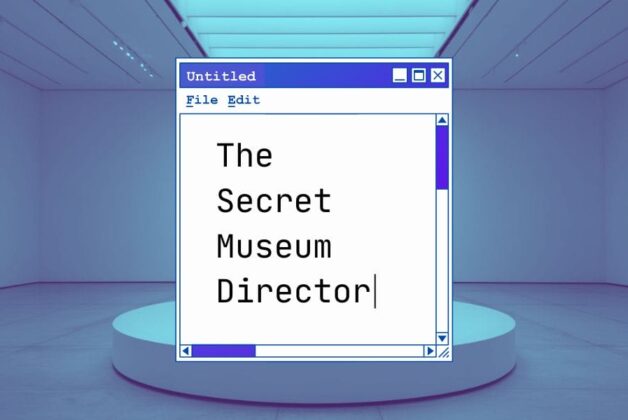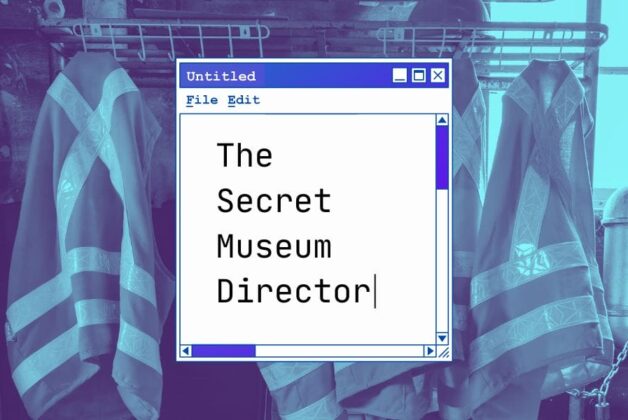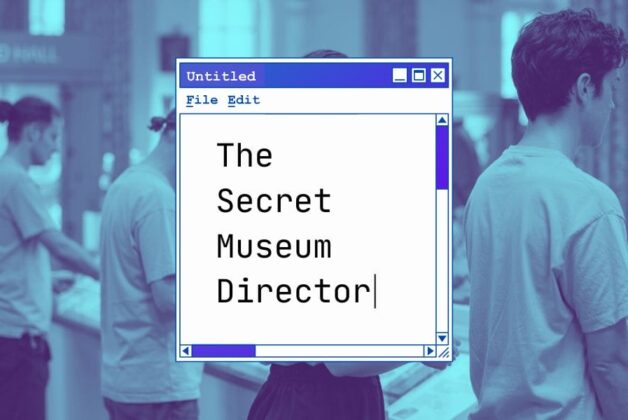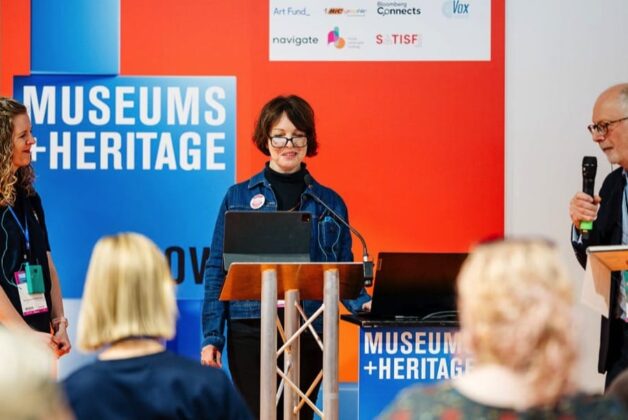Museum of Truth & Lies artwork | Credit: Yasmin Khan
How much do you trust museums to tell the truth? This was the big question driving my research as a 2023/24 Fellow at the University of the Arts London AKO Storytelling Institute which culminated with the inception of the Museum of Truth & Lies (MOTL). Having spent my whole life working in the world of museums, I embarked on a quest to discover how much museums reveal or conceal the truth.
Being part of an inaugural cohort of storytelling fellows tackling the theme of ‘Truth and Lies’ gave me the courage to ask some tough questions to get to the heart of the matter. ‘Can we believe what we see in museums? Is everything museums tell us true?’, and ‘What stories are missing’?
My challenge was to come up with a theme and creative format focused on tackling mis and disinformation. My creative enquiry was centred on exploring to what extent museums lapse into telling half-truths, by leaving out key information or concealing what’s missing. This is an important issue we all have a stake in; museums not only preserve our collections and heritage, they play a crucial role in shaping our collective identity and memory.
We need to have certainty about where we came from to know where we are going. George Orwell famously wrote in his iconic novel,1984:
“He who controls the past controls the future. He who controls the present controls the past.”
But if history is always written by the winners, who is documenting the stories from marginalised voices? The stories museums choose to be vocal about can reinforce a selected narrative. But where museums remain silent on a topic, they can become complicit in erasing history. When museums fail to get things right, they can find themselves tangled up in culture wars which erodes public trust.
Misinformation and museums
One of my inspirations for this project stemmed from independent research conducted by Ipsos. Their rigorous datasets reveal a fascinating pattern of who the British public deems are the most trusted professions, as shown in the Ipsos Veracity Index in 2022.
Notably, curators were ranked the 6th most trusted profession. According to the poll, 81% of people surveyed perceived curators as trustworthy professionals (compared to 86% in 2021).

It seems the good news is that the public do trust curators a lot. Despite this, I believe public trust in museums is in jeopardy. Long-serving curators like me are wrestling with the perils and pitfalls that get in the way of truth-telling. It’s possible the reality of what happens internally may not be consistent with outside perceptions.
Overall, it’s heartening that curators are currently in the top tier of most trusted professions, particularly in comparison to jobs that score low on public perceptions of trustworthiness such as Politicians and Advertising executives. Journalists are also worryingly low considering they are in the business of communicating news. In contrast, Professors rank much higher at 8th place.

This data fascinates me. I’ve been in touch with the team at Ipsos to learn more. A new wave of results from their latest filed research is set to be revealed at the end of 2024. I’m keen to see where curators rank next time. For future iterations of the Veracity Index, I’d be curious to see how the results might change if other storytelling professions were included. For instance, where would Artists rank given their creative aptitude to speak truth to power?
From story maker to museum changemaker
I did not start my fellowship intending to make a podcast series. The idea took time to brew. It was a roller-coaster adventure. After months of experimenting with various iterations and tussling between prototypes, I finally landed on the right format to achieve my goals. First, I needed to elucidate my theory of change which was tricky given I was tackling a wicked problem. Fortunately, our pool of mentors signposted us to a wealth of resources including the Sheila McKechnie Foundation’s Changemaker’s Toolkit which proved invaluable. In the spirit of storytelling for social change, I used this framework to develop a problem tree that helped me to identify specific target areas.
First, I needed to pinpoint a concrete problem to solve. I hypothesised museums inadvertently lapse into telling ‘half-truths’ whether by omission or obfuscation. A root cause is ‘Orientalism’ as explained by the writer Edward Said. I decided to zoom in on addressing orientalist paradigms of pedagogy and curation centred on othering that can distort truth-telling. I took a multi-pronged approach in defining my target audience to encompass students, educators, and lay museum visitors.
By visualising the root causes of surface-level problems I found a clearer focus. As the mist began to clear, I gained a deeper understanding of the status quo which helped me to visualise the wider context and potency of my storytelling intervention.

Armed with this root-and-branch solution for change-making in museums it became obvious where to channel my energy. It affirmed what format my creative output needed to be: a podcast series to inspire the next generation of curators and truth-tellers.
Using an audio-led format also meant I could play to my strengths. As an accredited coach, I love collecting oral histories and enjoy posing questions to people from all walks of life. Honing this participatory approach meant I didn’t have to have all the answers to proceed with my next steps. I could pool solutions.
I sought to ask activist artists and cultural leaders what they think museums are doing well and what they could do better when it comes to truth-telling. The precious insights I discovered through this conversational journey were highly sharable and useful too. But how to ensure impact? What would be the legacy? My strategy was that after listeners engage with the podcast series, I would signpost audiences to an online toolkit called the Muse-Zine, an artist-illustrated DIY magazine centred on ‘edutainment’ – blending entertainment with education – to embed as a lively and evergreen resource in curriculums.
Download the Muse-Zine: A Playbook for truth-telling in museums
Listen to the Museum of Truth and Lies podcast series via Spotify, Apple, Amazon Music, YouTube, Pocket Casts or wherever you get your podcasts.
Yasmin Khan is a museum professional and 2023/24 Fellow at the AKO Storytelling Institute. Follow @YasminCurates





